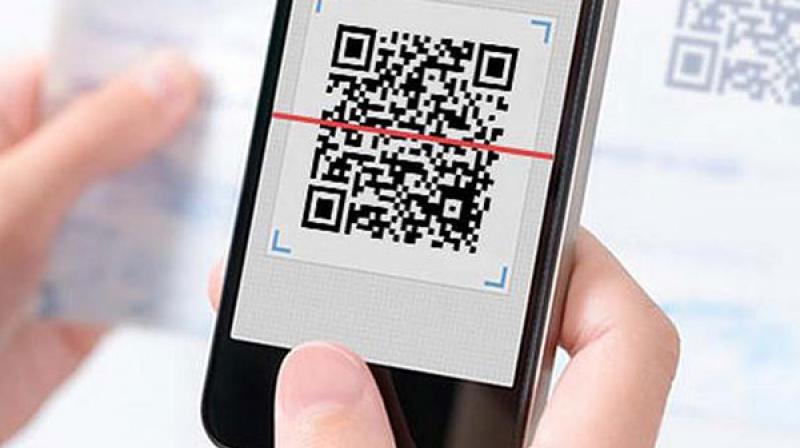QR codes are used by many companies (including the world’s leading technology giants) to direct people to their apps. The QR (Quick Response) code may be recognised by a QR (Quick Response) app. All that is necessary to decode the code is a camera and the app. While it saves time by eliminating the need to input bank account information, these genuine-looking codes might pose a security risk. And, as is our nature, we tend to ignore tiny details, allowing internet fraudsters to carry out their terrible deeds.
What do QR Code Fraudsters do?
To begin with, QR Code is a two-dimensional barcode or a matrix barcode, which is a machine-readable optical tag and carries information (mostly a bank account number) of the receiver. QR Code full form is ‘Quick Response’ code.
The cybercriminals mostly target online property buyers/rent-seekers who have registered on dubious real estate platforms and second-hand product listing platforms such as OLX, buyers coming from the social media platforms WhatsApp and Facebook, and bulk purchasing from portals. The scamsters usually introduce themselves as defence/army personnel or police officers to build initial trust.
Used for making a payment (Sending Money), the QR Codes (qr code generator online) are being used for duping citizens these days. Cyber scamsters urge people to scan the QR codes (qr code scanner), following which money gets debited from the victim’s bank account in a matter of seconds.
The QR Code scam started on used product selling platforms like OLX (qr code scam olx) and have now spread to online property listing websites as well. Usually, the cyber fraudster calls a landlord by impersonating a needy tenant and assures to book the property by depositing the requisite security amount. For this, he shares a QR Code on the property owner’s mobile phone (whatsapp qr code). As soon as the landlord scans that QR code, he loses money instead of getting it.
In the wake of recurring instances of such cases, the thumb rule to keep yourself protected is – ‘You must never scan a QR Code for receiving money.’
How to be alert from QR Code Scams
- It’s crucial to know how to recognise a QR code, but it’s also a good idea to avoid scanning any unfamiliar QR codes and instead consider them as a dodgy link you’d prefer not click to avoid getting scammed.
- If you observe any unusual activity, immediately contact your bank and reset your password.
- QR codes often have abbreviated URLs, making it difficult to find the original site. In this case, you may show the URL before authorising redirection to the link using a genuine QR scanner (read the App Store reviews and ratings before downloading it).
- If you’re using or considering using a QR code scanner, make sure you have an app with built-in filters.
- You can install and update security software that blocks harmful websites across all of your devices.
- If you or a member of your family has been the victim of a scam like this, call the police and register a report with the cyber cell, or file an online complaint with the cybercrime.gov.in portal. Although the chances of collecting recompense are minimal, it would at least dissuade burglars from employing similar tactics in the future.
What to Do if You Become a Victim of a QR Code Scam
- Contact your bank and request that your account be temporarily blocked. If you don’t, the thieves who conned you may be able to withdraw every penny from your account.
- Run a virus scan to ensure that the malicious URL encoded in the QR code isn’t infected.
- Change your passwords if the QR code sent you to a phishing website where you entered personal information and passwords. If you’ve used the same password for other accounts, you should change them as well. To keep your accounts safe, use strong and unique passwords.
- If you were approached by a fraudster using a website, an online marketplace, or an app, report the scammer’s username on that platform. You can also report the fraud to a scam warning website like the Better Business Bureau’s website. This will help others avoid becoming a victim of the same trick.

